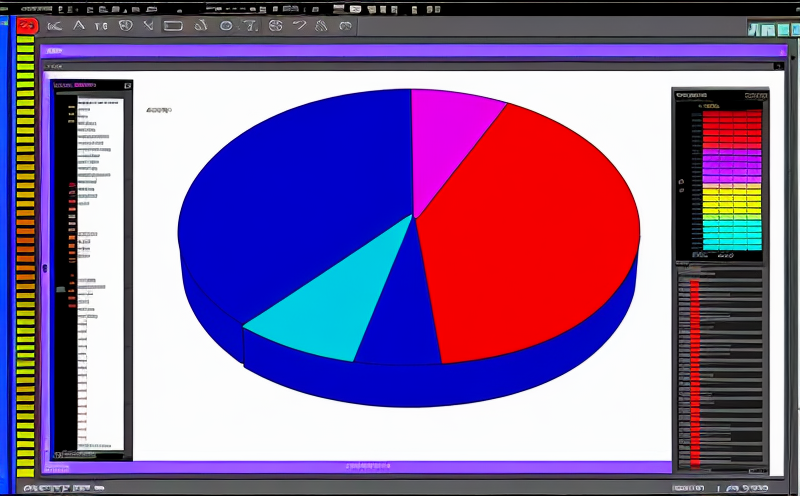GB T 19467 Thermogravimetric Analysis of Materials
GB/T 19467, also known as Thermogravimetric Analysis (TGA), is a powerful analytical technique widely used in material science for the characterization and evaluation of materials. This method allows scientists to measure changes in mass over time while heating or cooling a sample under controlled conditions. The primary purpose is to study physical, chemical, and thermal properties of substances.
The procedure typically involves placing a precise amount of solid material into a crucible that can be heated within an atmosphere-controlled environment. As the temperature increases, any volatile components evaporate or gases are released, leading to a decrease in mass. Conversely, if the sample absorbs moisture or reacts with the surrounding gas, there is an increase in mass. This balance between loss and gain provides insights into various aspects such as decomposition temperatures, thermal stability, purity levels, and phase transitions.
Thermogravimetric analysis plays a crucial role across multiple industries including pharmaceuticals, petrochemicals, electronics, polymers, ceramics, and coatings. Its applications range from quality assurance to research and development activities where understanding how materials behave under different thermal conditions is essential. By adhering strictly to standards like ISO 11358, laboratories ensure accurate results that meet regulatory requirements.
The testing process involves several key steps which begin with specimen preparation ensuring uniformity and representativeness of the sample. Once prepared, it gets loaded onto a balance within an oven-like chamber where precise temperature control is maintained throughout the experiment. During heating or cooling cycles, data points are recorded every few seconds capturing variations in weight accurately. After completion, detailed reports summarizing findings are generated providing valuable information about thermal behaviors.
In terms of real-world usage notes, TGA has been instrumental in identifying critical process parameters during manufacturing processes. For instance, in pharmaceuticals, it helps determine optimal drying temperatures preventing degradation without compromising efficacy. Similarly, in electronics, it aids in selecting appropriate packaging materials that do not affect product integrity during storage or transportation.
Another application lies within environmental monitoring where TGA can detect trace levels of contaminants present in air samples. By comparing baseline measurements with those taken after exposure to suspected pollutants, laboratories can pinpoint specific compounds responsible for adverse effects. Furthermore, this technique supports sustainable practices by facilitating the development of eco-friendly alternatives through rigorous testing.
Adherence to international standards ensures consistency and reliability across various sectors. Using methods outlined in GB/T 19467 guarantees accurate results that comply with industry norms enhancing trustworthiness among stakeholders.
- Reduction in waste generation by optimizing production processes
- Promoting recycling initiatives based on thorough material evaluations
- Emission reduction strategies informed by precise analytical data
- Sustainable sourcing decisions guided by comprehensive material assessments
Eurolab Advantages
At Eurolab, we pride ourselves on offering unparalleled expertise in conducting GB/T 19467 thermogravimetric analysis. Our experienced team comprises seasoned professionals who understand the nuances of this complex technique. Leveraging state-of-the-art equipment and advanced software solutions allows us to deliver precise and accurate results every time.
Our laboratories are equipped with cutting-edge TGA instruments capable of handling a wide range of sample types from fine powders to large chunks. This versatility ensures that no matter the nature or size of your material, we have the right tools to analyze it effectively. Additionally, our robust quality management system guarantees consistency and accuracy in all our tests.
Moreover, Eurolab’s commitment extends beyond just performing analyses; we also offer comprehensive consultancy services tailored specifically towards helping clients optimize their manufacturing processes using TGA insights. Whether you need help selecting appropriate packaging materials or determining optimal drying temperatures, our experts can provide valuable guidance backed by scientific evidence.
To ensure your peace of mind regarding data integrity and confidentiality, Eurolab maintains strict adherence to industry best practices. All personal information collected during the consultation process remains strictly confidential and is used solely for internal purposes related directly to providing you with superior service.
Quality and Reliability Assurance
At Eurolab, we understand that reliability and accuracy are paramount when it comes to thermogravimetric analysis. That’s why we’ve implemented rigorous quality assurance measures throughout our entire operation ensuring top-notch standards at all times.
Our laboratories strictly follow international guidelines including GB/T 19467 which guarantees consistent results across different batches of samples. To maintain consistency, we use calibrated equipment regularly verified against known reference materials. This ensures that the data obtained is reliable and reproducible.
In addition to internal audits conducted periodically, external accreditation bodies review our procedures annually ensuring compliance with relevant regulations. By adhering strictly to these standards, not only do we enhance credibility but also ensure that clients receive accurate results they can trust confidently.
For those concerned about potential errors or discrepancies in their data due to human factors or mechanical issues, Eurolab offers robust quality control measures. These include redundant checks at critical stages of the testing process and backup systems in place should any malfunction occur during an experiment.
Environmental and Sustainability Contributions
Thermogravimetric analysis plays a vital role in promoting sustainability by contributing to resource efficiency, waste reduction, and eco-friendly practices. By providing detailed insights into material behavior under varying thermal conditions, this technique helps identify optimal processing parameters which minimize energy consumption while maximizing product quality.
- Resource Efficiency: Understanding the optimal drying temperature prevents over-drying leading to unnecessary loss of raw materials during production processes.
- Waste Reduction: Identifying decomposition temperatures accurately allows manufacturers to recycle more effectively reducing landfill waste and environmental impact.
- Eco-Friendly Alternatives: Through rigorous testing, TGA supports the development of sustainable alternatives ensuring they meet stringent quality standards before being introduced into markets.
Furthermore, by minimizing emissions during manufacturing through precise temperature control, industries can significantly reduce their carbon footprint contributing positively to global efforts towards climate change mitigation.





